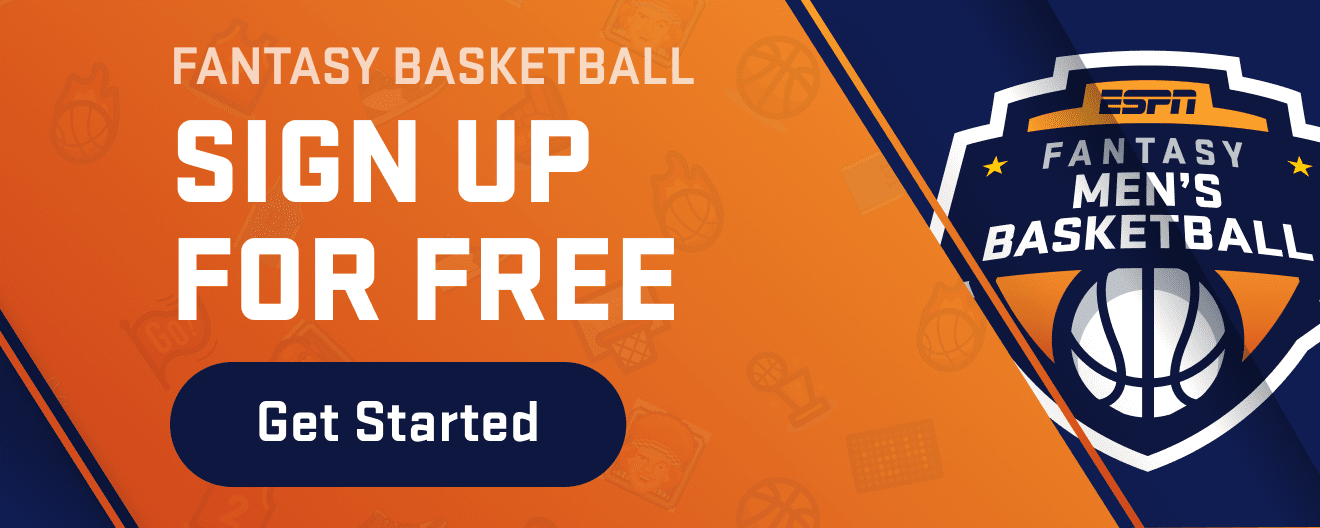Roundtable: How to navigate injury-riddled rosters
With Joel Embiid out, Montrezl Harrell and Paul Reed are quickly filling in nicely for the Philadelphia 76ers. (0:58)
One of the biggest challenges in fantasy basketball in 2022-23 is the amount of players who are missing games due to injury in the opening months of the season.
So what do our experts suggest you do if your team is riddled with players who are missing games?
Here are André Snellings, Eric Moody, Eric Karabell, Jim McCormick and John Cregan to offer up the approach they’ve been taking so far this season.
Create or join an ESPN Fantasy Basketball league today and draft your league any time before the first game tips off every Monday. Your league starts fresh with 0-0 records for the new matchup period.
I’ve been more aggressive streaming, cutting players I’d typically ride out cool patches from if I don’t feel they have the long-term upside to justify it. In a competitive 14-team league I’m in, I cut Kevin Love early in the season and have consistently cut players whom I wanted to keep because I needed injury replacements. I’ve also been doing some of the opposite … in leagues where I’m in either a particularly strong position, or a desperate one, I’ve looked into trading for injured players and taking the risk they’ll return at higher value. It’s a team-by-team decision, but like Littlefinger said on “Game of Thrones,” “Chaos is a ladder.” — Snellings
I admit to studying the standings a bit earlier than usual, in part to gauge if I need to make major changes to my injury-ravaged squads. I clearly chose the wrong season to invest in 76ers (James Harden, Tyrese Maxey, now Joel Embiid). My teams are playing with short benches and little room for error. I would cut players who perhaps shouldn’t be cut if it was February or March, but it’s still early. Be patient. If you know you have a good team that can rock when healthy, then wait for health and be OK with a shortage of games on a weekly basis. We’ve all got to deal with it. — Karabell
I’ve been approaching this season as if it’s The Bubble Strikes Back. Bubble conditions forced me into a new way of thinking; envisioning my IR slots as my franchise’s G League team. It’s a farm team, there to rehab injured players I pick up off the wire, or to rehab homegrown stars I consider undroppable. Because if you’re not near borderline undroppable, and you’re projected to miss more than a week? My inner Bill Belichick is inclined to cut you … but warmly wish you well in your future endeavors. — Cregan
In a weekly league I am more willing to take my lumps with games missed from a star producer taking up a roster spot on the pine. I say this because you can try to make up games missed in such formats by actively streaming with one or two roster spots throughout the week. You can build some productive patchworked stretches adding the likes of Tyus Jones or Cameron Payne when opportunity knocks that you’d miss out on if you didn’t dedicate one or two roster spots to churning for value. So the ideal strategy is to simply grind and react to the value the league creates via injuries and rotation shifts. In a roto format it can be trickier given the sheer need to keep pace with games played, so I might have a quicker shift to moving on from fringe top-100 players who are hurt in such a format. — McCormick
My strategy depends on if I’m participating in a points or category league. The strategy is based on having one or two expendable players to provide flexibility to stream. My approach in points leagues is to identify a player who is likely to provide a high number of minutes and significant usage. My goal in category formats is to boost production in one or two categories, ideally by grabbing specialists on four-game weeks. — Moody
